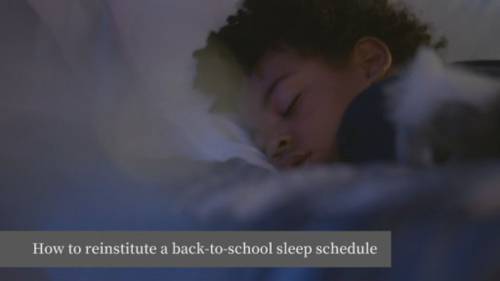The alarm clock’s jarring buzz—a sound that’s been blissfully absent for weeks—now signals the harsh reality of September’s arrival. As children across Montreal trade swimming pools for school desks, parents are facing the annual struggle of resetting their kids’ internal clocks after months of summer freedom.
“The transition from summer to school schedules creates what I call ‘social jet lag‘ in children,” explains Dr. Marie Dumont, sleep researcher at the University of Montreal. “It’s essentially the same as flying across multiple time zones, except the only thing that’s changed is the time they need to wake up.”
This phenomenon affects thousands of families each year, yet many parents underestimate just how difficult—and important—the sleep transition can be. Studies consistently show that inadequate sleep doesn’t just lead to cranky children; it significantly impacts learning capacity, emotional regulation, and even physical health.
The science behind children’s sleep needs is clear and compelling. School-aged children require between 9-12 hours of quality sleep, according to the Canadian Paediatric Society. Yet by the end of summer, many kids have drifted into patterns where they’re going to bed well past 10 PM and waking up close to noon—creating a deficit that can’t be corrected overnight.
“Parents often make the mistake of waiting until the night before school starts to attempt resetting their child’s schedule,” notes Dr. Dumont. “This approach is doomed to fail because the body’s circadian rhythm needs time to adjust—typically about one week for each hour of shift needed.”
The consequences of poor sleep extend far beyond the breakfast table. Research published in the Canadian Journal of Education last year found that students who regularly obtained insufficient sleep scored measurably lower on standardized tests and were more likely to experience behavioral problems in the classroom.
For Montreal mother Isabelle Tremblay, the struggle is all too familiar. “My son Lucas spent the summer staying up until almost midnight and sleeping until 10 AM. Now I’m trying to get him up at 6:30 for school, and it’s absolute warfare every morning,” she sighs. “I wish I’d started the transition sooner.”
Experts recommend a gradual approach, shifting bedtime earlier by 15-20 minutes every two days, beginning at least two weeks before school starts. This method works with the body’s natural adaptation process rather than fighting against it.
Digital devices compound the problem significantly. The blue light emitted from screens actively suppresses melatonin—the hormone that signals to our bodies it’s time to sleep—making it physiologically harder for children to fall asleep after evening screen time.
“We see a direct correlation between increased screen time during summer months and difficulty returning to healthy sleep patterns,” explains pediatric psychologist Dr. Thomas Beaulieu. “The combination of irregular schedules and increased technology exposure creates a perfect storm for sleep disruption.”
For parents still struggling with the transition, there’s hope in establishing consistent routines. Sleep experts recommend creating a calming bedtime ritual that might include reading, gentle conversation, or relaxing music. The key is consistency—the same activities, in the same order, at the same time each night.
“Think of it as creating sleep cues for the brain,” suggests Dr. Beaulieu. “When these activities happen repeatedly before sleep, they become powerful signals that help the body prepare for rest.”
While the adjustment period may be challenging, most children adapt within two to three weeks of consistent scheduling. For those continuing to struggle, experts recommend consulting with healthcare providers, as persistent sleep issues can sometimes indicate underlying conditions that require attention.
As we navigate another back-to-school season, perhaps it’s worth considering that healthy sleep habits aren’t just about surviving September—they’re about establishing patterns that support children’s development throughout the academic year. The investment in proper sleep transitions now pays dividends in classroom performance, emotional well-being, and family harmony for months to come.
For more insights on supporting children through major transitions, visit our Culture section, where we regularly explore the intersection of family life and societal expectations. After all, in the rhythm of parenting, few things matter more than helping our children rest well so they can rise to their potential.









